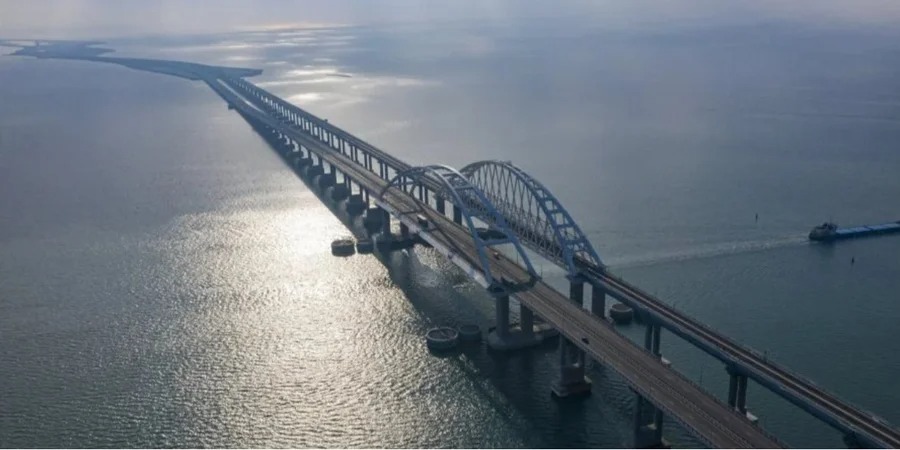Moscow has dramatically strengthened security at the Kerch (Crimean) Bridge, implementing full passport control at the crossing that connects occupied Crimea with Russia's Krasnodar Krai.
The heightened security, announced by Russian-installed Crimean Transport Minister Alexandr Ovdiyenko, stems from Putin's decree and an indefinite "yellow" terrorist threat level in the region. While the exact trigger for the timing of these measures remains unclear, they follow two major Ukrainian attacks on the bridge: a truck bombing in October 2022 and a maritime drone strike in July 2023.
The bridge serves as a vital supply route for Russia's military operations in Ukraine, transporting personnel, equipment, and weaponry to the occupied peninsula. Since May 2024, Moscow has fortified it with multiple layers of defense, including double rows of barges, boom barriers, anti-drone structures, and maritime obstacles like tetrapods and metal "hedgehogs."
Ukrainian Navy spokesperson Dmytro Pletenchuk noted Russia considers it a top-priority protection site, leading to the deployment of additional air defense systems and monitoring towers.
The intensified measures reflect the bridge's dual significance: as a critical military supply line supporting Russia's war effort and as a symbol of Moscow's 2014 annexation of Crimea.
Read more:
- Russia blocks traffic on Kerch Bridge amid reports of drone activity
- Russian naval security barriers for Kerch Bridge found floating near Kerch coast
- Ukrainian diplomat: Kerch Bridge must cease to exist for maritime freedom





